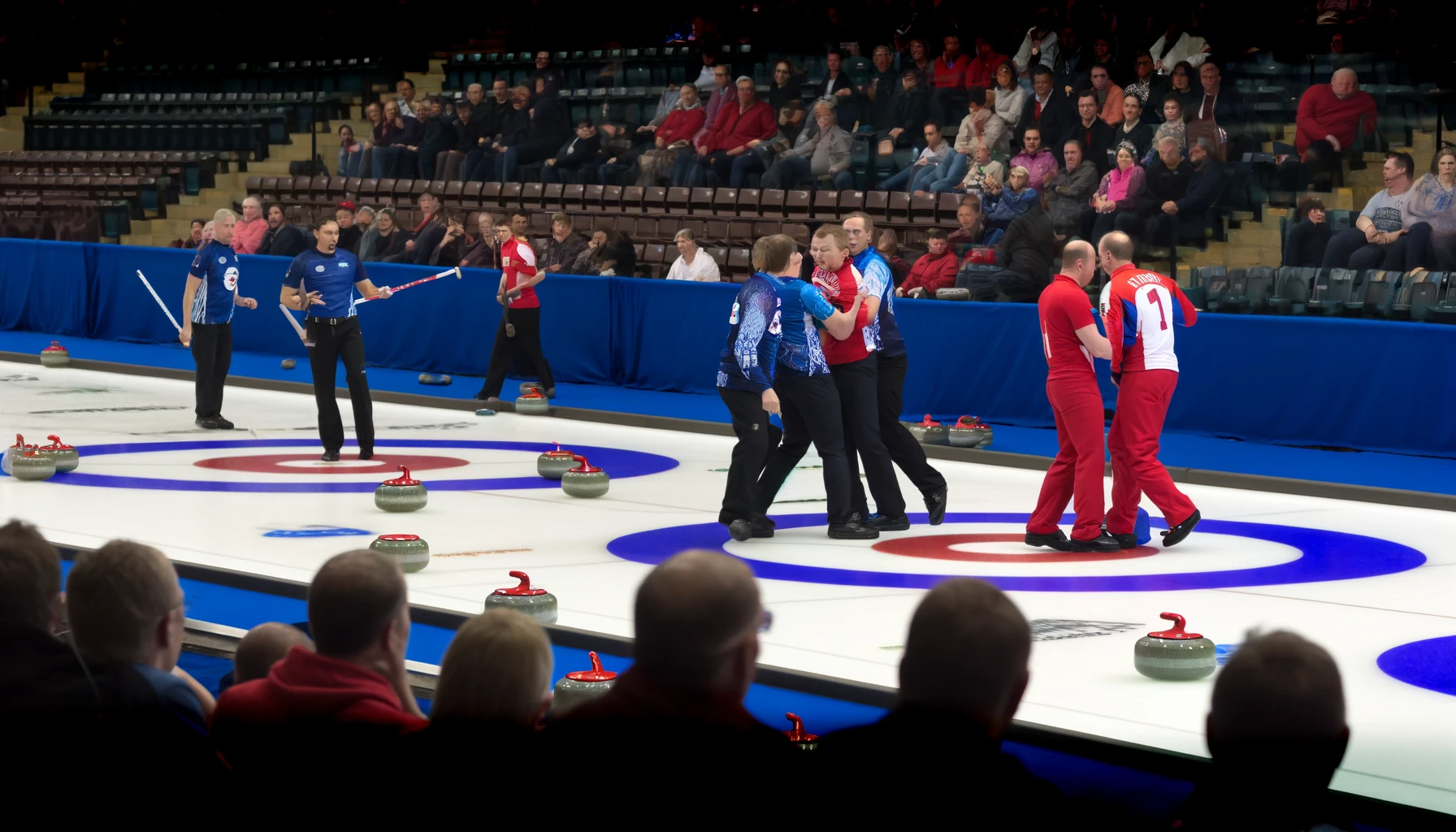Officiating and refereeing play a crucial role in full-contact curling to ensure fair and safe gameplay. The referees or officials are responsible for enforcing the rules, making judgments on penalties or disputes, and maintaining the integrity of the game. Here are the key aspects of officiating and refereeing in full-contact curling:
1. Referee Roles and Responsibilities: Referees are appointed to oversee each match and ensure that the game is conducted in accordance with the established rules and regulations. They have the authority to make decisions, assess penalties, and maintain order on the ice.
2. Pre-Game Meeting: Prior to the start of the match, the referees meet with the team captains to review the rules, clarify any specific instructions, and address any questions or concerns. This ensures that all participants have a clear understanding of the expectations and guidelines for fair play.
3. On-Ice Presence: Referees are present on the ice during gameplay, positioned strategically to observe the actions of the players and monitor adherence to the rules. They closely watch the interactions between players, provide guidance if needed, and intervene in case of rule violations or safety concerns.
4. Rule Enforcement: Referees have the authority to enforce the rules and assess penalties when necessary. They are responsible for detecting fouls, infringements, or unsportsmanlike conduct and taking appropriate action to maintain the integrity of the game.
5. Penalty Assessment: Referees assess penalties based on the severity and nature of the infraction. Penalties may include time in the penalty box, expulsion from the game, or additional consequences depending on the rules and regulations established by the league or governing body.
6. Conflict Resolution: Referees act as mediators in case of conflicts or disputes between players, coaches, or team officials. They facilitate discussions, listen to all parties involved, and make impartial decisions to resolve conflicts and ensure a fair outcome.
7. Video Review: In cases where there is uncertainty or controversy surrounding a specific incident or play, referees may utilize video review technology to review the footage and make more informed decisions. Video review can help in determining the accuracy of shots, assessing penalties, or resolving contentious situations.
8. Official Communication: Referees maintain open lines of communication with players, coaches, and team officials throughout the game. They provide explanations for their decisions, clarify rule interpretations, and address any concerns or questions raised by the participants.
9. Post-Game Procedures: After the conclusion of the match, referees may participate in post-game meetings or debriefings to evaluate their performance, discuss any notable incidents, and identify areas for improvement. This continuous feedback loop helps maintain consistency and professionalism among the officiating crew.
By upholding the principles of fair play, maintaining game flow, and ensuring the safety of the players, referees play a vital role in the successful execution of full-contact curling matches. Their presence and expertise contribute to the overall integrity and enjoyment of the sport for both participants and spectators.





